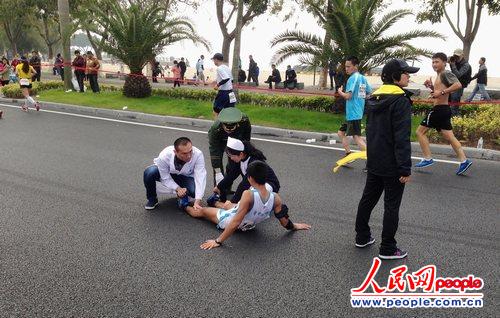Progress on transplants puts nation in spotlight
A 10-year reform that has shaken off China’s dependence on executed inmates as the primary source for transplant organs has brought the country to the Vatican to share on the world stage its experience in combating organ commercialism.
Huang Jiefu, a former vice-minister of health and now director of the National Human Organ Donation and Transplant Committee, was invited by the Vatican’s Pontifical Academy of Science to speak about the “China model” of organ donation and transplant management at the two-day Summit on Organ Trafficking and Transplant Tourism that opened on Tuesday.
“This is the first time that China has been invited to a summit on organ transplanting held by an authoritative international organization,” Huang was quoted by the Global Times as saying on Monday. He could not be reached for comment on Tuesday.
Chen Jingyu, deputy director of Wuxi People’s Hospital in Jiangsu province and a leading lung transplant specialist, said such an invitation is “a New Year gift for us Chinese transplant surgeons who have been gradually recognized by international peers”.
In response to speculation on whether the invitation marks an improvement in China-Vatican relations, Foreign Ministry spokesman Lu Kang said on Tuesday at a regular media briefing that Huang’s participation “has nothing to do with the development of the bilateral relationship”.
China first performed a transplant in the 1970s, and Huang acknowledged in 2005 that a majority of the organs transplanted were harvested from executed prisoners.
To conform with international practice, China launched a public organ donation system and announced in 2015 that the use of organs from executed inmates had ceased.
By the end of last year, about 28,000 major organs such as livers, kidneys and lungs were harvested from nearly 10,000 donors who had died, according to data from the National Health and Family Planning Commission.
More than 140,000 people have registered under the organ donation system, according to the China Organ Transplantation Development Foundation, an organization under the commission.
“That demonstrates the great benevolence of the Chinese and an ever-increasing voluntarism,” Huang said earlier.
That helps China gain international acclaim and, more important, “sustain the development of organ transplantation here”, said Guo Zhiyong, a leading liver transplant surgeon at the First Affiliated Hospital of Sun Yat-sen University in Guangzhou, Guangdong province.
“I consider the invitation by the Vatican a recognition and huge encouragement for China’s organ transplantation field,” he said.
“An increasing Chinese involvement in global academic exchanges in transplants also benefits the world, since China ranks second in the world in the number of transplants, second only to the United States,” Guo added.
Chen, from Wuxi People’s Hospital, urged more Chinese surgeons to participate in international academic communications and “inform the world of China’s changes”.
However, there is still a long way to go before China’s organ donations fully satisfy the demand, said Huang, the former vice-minister of health.
Although China performs about 10,000 transplants a year, 300,000 patients are waiting for organs, previous reports said.
